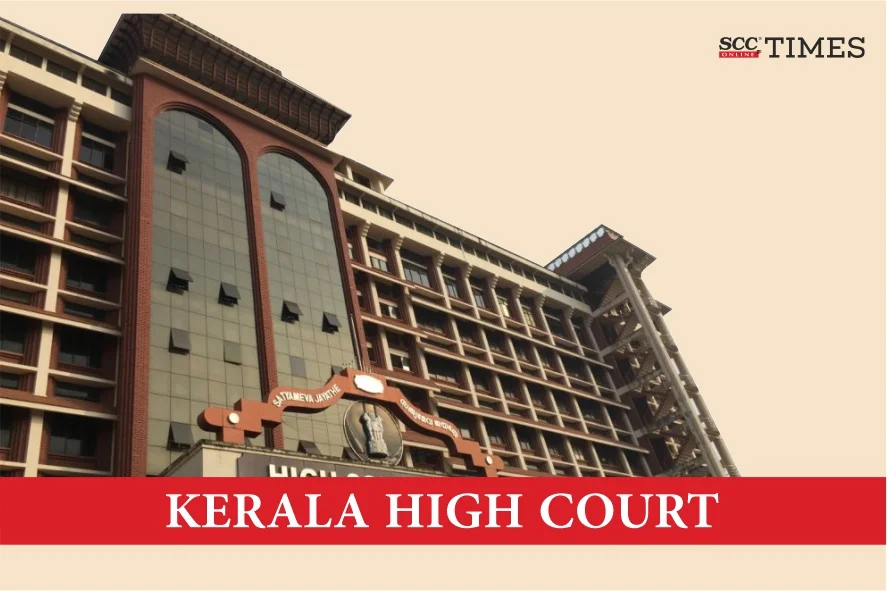Kerala High Court: In a criminal miscellaneous application against an order of the trial court filed by a person not released from custody due to failure in furnishing sufficient surety, the bench of Bechu Kurian Thomas, J. sets aside the impugned order observing that the trial court ought to fix a reasonable bond amount and the sureties offered to be treated as sufficient for releasing the petitioner on bail.
The petitioner is facing indictment in 78 cases for offences under Sections 406, 408, 409 and 420 read with Section 34 of the Penal Code, 1860 (‘IPC’). The petitioner was arrested on the allegation that he had cheated various persons as an accountant of a Hospital Co-operative Society and failed to return the deposit on demand. Since the investigation was not completed, he was granted statutory bail but was not released from custody due to his failure to furnish sufficient sureties. The sureties offered by the petitioners were accepted in 25 cases but through the impugned order, the Trial Court refused to accept the second surety offered by the petitioner stating the value of the property offered by her was not commensurate with the not required to be executed. The Trial Court mentioned that the value of the property was not sufficient to inspire confidence of the Court.
The Bench, after hearing submissions from both sides, first off, reiterated the observation in Venugopal v. State of Kerala, 2024 SCC OnLine Ker 339 that separate sureties need not be insisted when there are several cases registered against an accused.
The Court also remarked that right to be enlarged on statutory bail under Section 167(2) of the CrPC is a fundamental right and not merely a statutory right as it flows from Article 21 of the Constitution and is an indefeasible part of the right to personal liberty. The Court further observed that neither the prosecution nor Court could frustrate this right of the accused through unreasonable conditions.
The Court mentioned S. Kasi v State [(2021) 12 SCC 1] and Vishnu Sajanan v State of Kerala [2023 (7) KHC 686] to highlight that right to statutory bail cannot be defeated by imposing conditions that are too stringent and impossible for performance.
The Bench deduced the principles for determining whether sureties are fixed or sufficient as laid down in the statutory provisions and said that a Court can accept affidavits in proof of facts. The Court also said that person standing as a surety will have to swear an affidavit referring to his ability to satisfy the bail conditions in case of breach by the accused and his readiness to produce the accused in Court when required to do so. The Court mentioned that a Criminal Court can accept an affidavit sworn to by the surety in proof of the facts stated therein and can satisfy itself about the sufficiency of the surety on that basis.
The Court discussed the interpretation of Section 441 of the Criminal Procedure Code, 1973 (‘CrPC’) to aver that an accused needs to execute only bonds that are sufficient in the mind of the Court for the amount so fixed. The Bench also said that the amount of the bond shall not be excessive as intended under Section 440 of the CrPC and in cases where the affidavit is not accepted, the requisite documents are required to prove solvency.
The Bench cited Valson v State of Kerala (1984 SCC OnLine Ker 86) to clarify that the law does not mandate the production of original title deeds, tax receipts or solvency certificates as sometimes insisted by the Magistrates and can be skipped.
The Court observed that the Criminal Courts are not bestowing adequate attention to the desirability of granting bail on personal bond, leading to orders insisting on sureties to produce solvency certificates. The Bench also remarked that Magistrates are not even satisfied with the sufficiency of surety if the value of the property of one of the two sureties is not equivalent to the total value of bond amounts, that too, fixed arbitrarily high.
The Court insisted that the CrPC provides safeguards in case the accused fails to appear, and the persons who act as sureties are also unable to produce the accused. The surety who is bound by the bond can be called upon to pay a penalty and if unpaid, it can be recovered as per Section 446(2) of the CrPC, as if it is a fine imposed under the Code. Further, if the penalty is not paid and the fine cannot be recovered, imprisonment of the surety in jail for a period of up to six months can also be ordered.
The Court said that the quantum of the bond to be executed cannot be made to depend on the amount involved in criminal cases and that a criminal proceeding is not instituted to recover the money. The lookout of the criminal court cannot be to act as a recovery court for the complainant or for the prosecution. When a bond is directed to be executed, it is only intended to act as a compulsion for ensuring the presence of the accused during trial.
The Court set aside the impugned order satisfied that the trial court erred in refusing to accept the sureties offered. The Court also observed that the trial court ought to fix a reasonable bond amount and the sureties offered be treated as sufficient for releasing the petitioner on bail. If at all the court feels that the sureties accepted are insufficient, the court is always at liberty to initiate procedure under Section 443 of CrPC later, to provide further sufficient sureties. The Court directed the trial court to issue fresh orders in the applications in light of the observations made.
[Renjith Kumar V. K. v. State of Kerala, 2024 SCC OnLine Ker 1351, Order dated 19-03-2024]
Advocates who appeared in this case:
For the Petitioner: Advocate Latheesh Sebastian
For the Respondent: Public Prosecutor Sreeja V.









